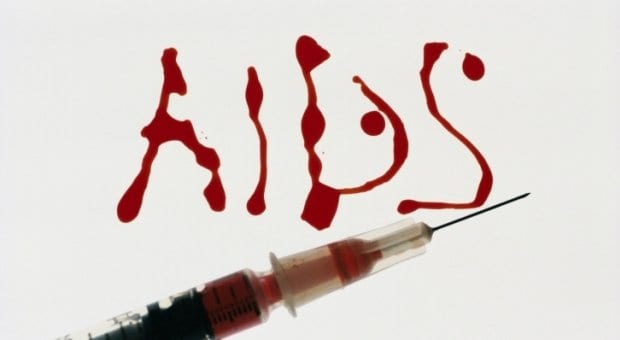Having HIV in 2013 is like being a gay man in 1950. Back then, sucking dick was illegal in Canada and homos took to forming underground communities and lying to avoid job loss, imprisonment, financial ruin and being denied access to essential services. With the constant threat of the RCMP and police entrapment/informants, taxpaying Canadian gay men knew to fear law enforcement and avoid criminal prosecution at all costs. Back then, if you were found guilty of conducting a “lewd and lascivious” act with another man, you could be registered as a sex offender for life.
Now, in 2013 in Canada, homosexuality is decriminalized, we have anti-discrimination laws, we can marry, serve openly in the military and legally change our gender. But test positive for the human immunodeficiency virus and you’ll find yourself right back in 1950. Gay men with HIV are terrified of law enforcement, distrust public health and general practitioners, and are combating a level of stigma, misinformation and fear that may surpass anything they have experienced as modern gay men. But this would be all too familiar to a gay elder.
Stop for a minute and consider how gay men are often pathologized for their risk taking and sero-converting after 30-odd years of HIV/AIDS prevention messaging. Epidemiologists, politicians, pharmaceutical companies, psychiatrists and even members of our own queer community have used words like “promiscuous,” “self-destructive,” “neurotic” and “unstable” in an attempt to understand the behaviour of gay men who are still participating in condomless sex. If these adjectives sound familiar, they should. They were once used to describe the inherent “character flaws” of homosexuals way back in 1950. Now we use them to describe people who have contracted HIV in 2013. Rather than discuss ideas like safer injection sites, comprehensive and pleasure-based sex education, affordable anti-viral medications and racism, it remains easier to blame the character of those infected and create moral panic.
Until 1969 homosexuality was defined as a social, sexual, criminal and national danger by our government. Vice cops would linger outside gay bars and record the licence plate numbers of people who unwittingly parked near them and report them as homosexuals to their employers, who often fired them. Police had “arrest quotas” and often set about entrapping men in public bathrooms. Carleton University professor Frank R Wake built the “Fruit Machine” for the government so it could detect and avoid hiring homos for “sensitive positions.” Being found out then as a practising homosexual could get you charged with gross indecency, lead to your being labelled a dangerous sexual offender and get you publically shamed and stigmatized in the newspapers of the day.
Now consider how engaging in consensual sex — whether it is protected, disclosure has occurred or viral load is undetectable — can lead to the same outcomes in 2013. Think about how the courts have criminalized transmission and exposure to HIV to such a degree that by continuing to enjoy sex as an HIV-positive person you could be risking being charged with attempted murder, murder, aggravated sexual assault or administering a noxious substance (your semen). Mull over how many of those accused of HIV transmission have had their names, pictures, sexual practices, occupations and health statuses spread across the internet and front pages of their local newspapers.
In 1975 the Ottawa police charged 18 men with participating in a “homosexual vice ring,” and the Ottawa Citizen newspaper gleefully reported and sensationalized the flimsy case until one of the accused, Warren Zufelt, a 34-year-old civil servant, threw himself off the 13th storey of his apartment building. The subsequent “guilt” felt by the Ottawa Citizen caused the paper’s editors to subsequently approach issues pertaining to homosexuality more delicately, yet in 2010 they splashed the face of a gay man accused of HIV transmission across the front pages and labelled him a “bug chaser” and “toxic.” The fallout, in part, manifested in a drop in donations and support for that year’s AIDS Walk, affecting more than 3,000 people in the area living with HIV. For gay men of a certain age living in Ottawa, they must have felt a strong sense of déjà vu.
It always surprises newly diagnosed queer men that systemic discrimination and barriers abound for them now as they did in the 1950s. With the potential for medical records and case notes to be obtained by police and used against them in a criminal or civil case, many positive gay men I’ve spoken to no longer feel safe accessing services at AIDS service organizations, discussing issues pertaining to disclosure with their family doctors, or presenting with a secondary sexually transmitted infection at a sexual health centre. With the increase in criminalization cases in North America and the role the police and public health have played in them, many HIV-positive folks are embracing silence and absenteeism as a means of defence. When once the HIV/AIDS movement championed the slogan Silence = Death, now they quietly whisper to each other “Silence = Life.”
Being adept at lying, trying to avoid blackmail, fearing losing a job, forging underground networks, battling loneliness and depression, fearing criminal prosecution, struggling to find a doctor — even a dentist — who you can be completely open with, are all challenges our gay elders faced. If they have HIV, these are challenges they continue to face — and if you’re newly diagnosed, these are challenges you will face. After all that has happened since 1950, it shouldn’t come as a surprise to anyone that police would rather arrest a man with a hard-on than focus their efforts on real crime, or that media would collaborate with the police to help criminalize, punish and organize discrimination against those who are HIV-positive. But what is perhaps surprising is that while most gay men recognize the struggles of our elders, and the weight of that history, they see it as something firmly in their past. Test positive today and it will very much be your present.


 Why you can trust Xtra
Why you can trust Xtra


